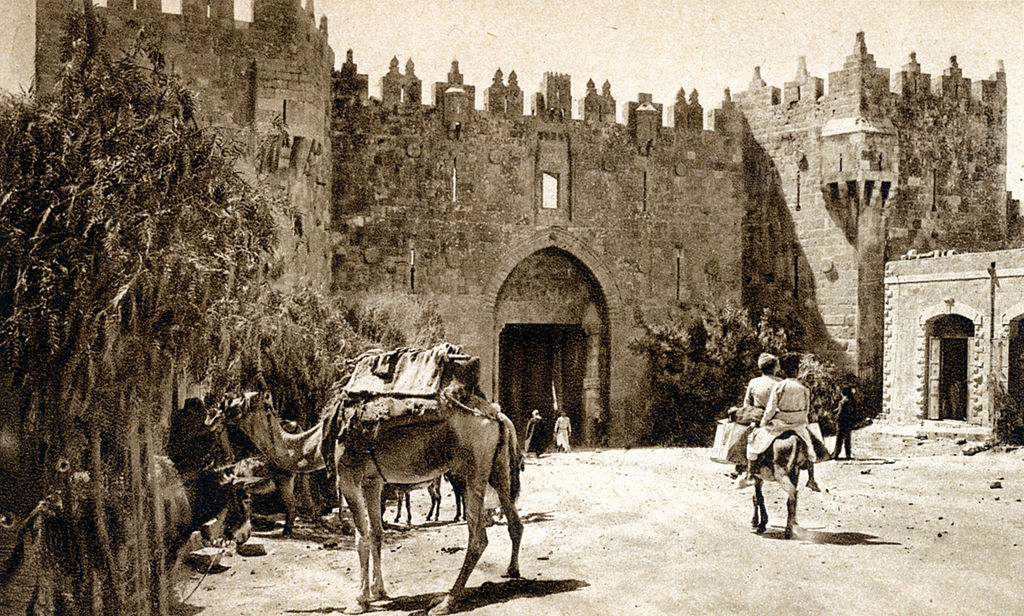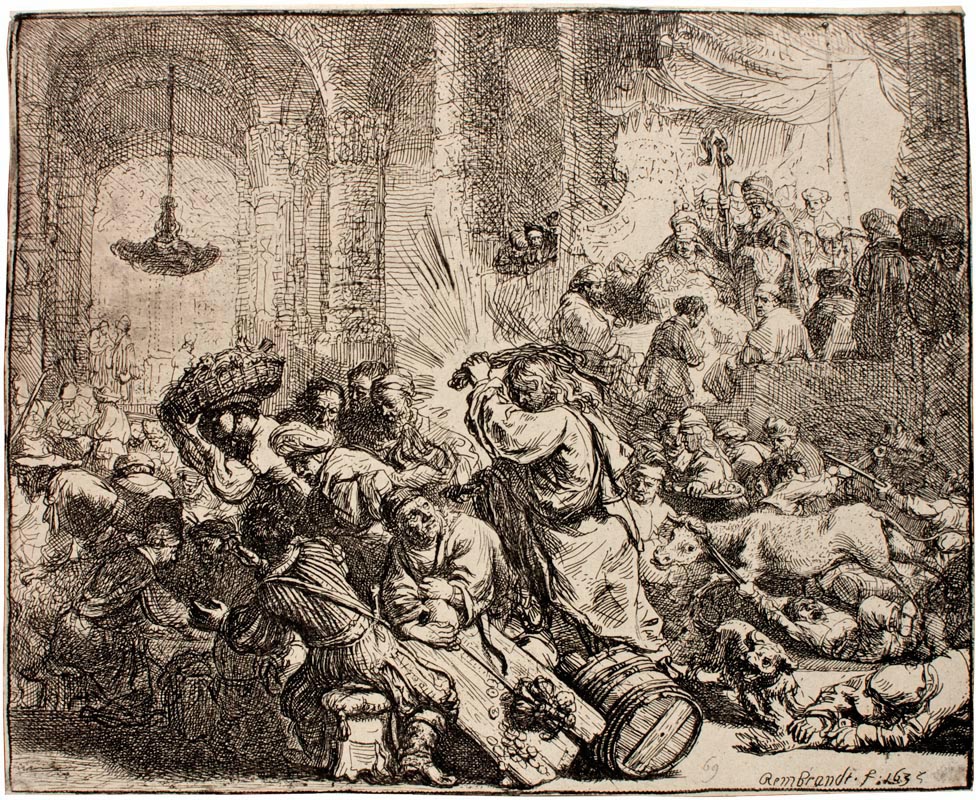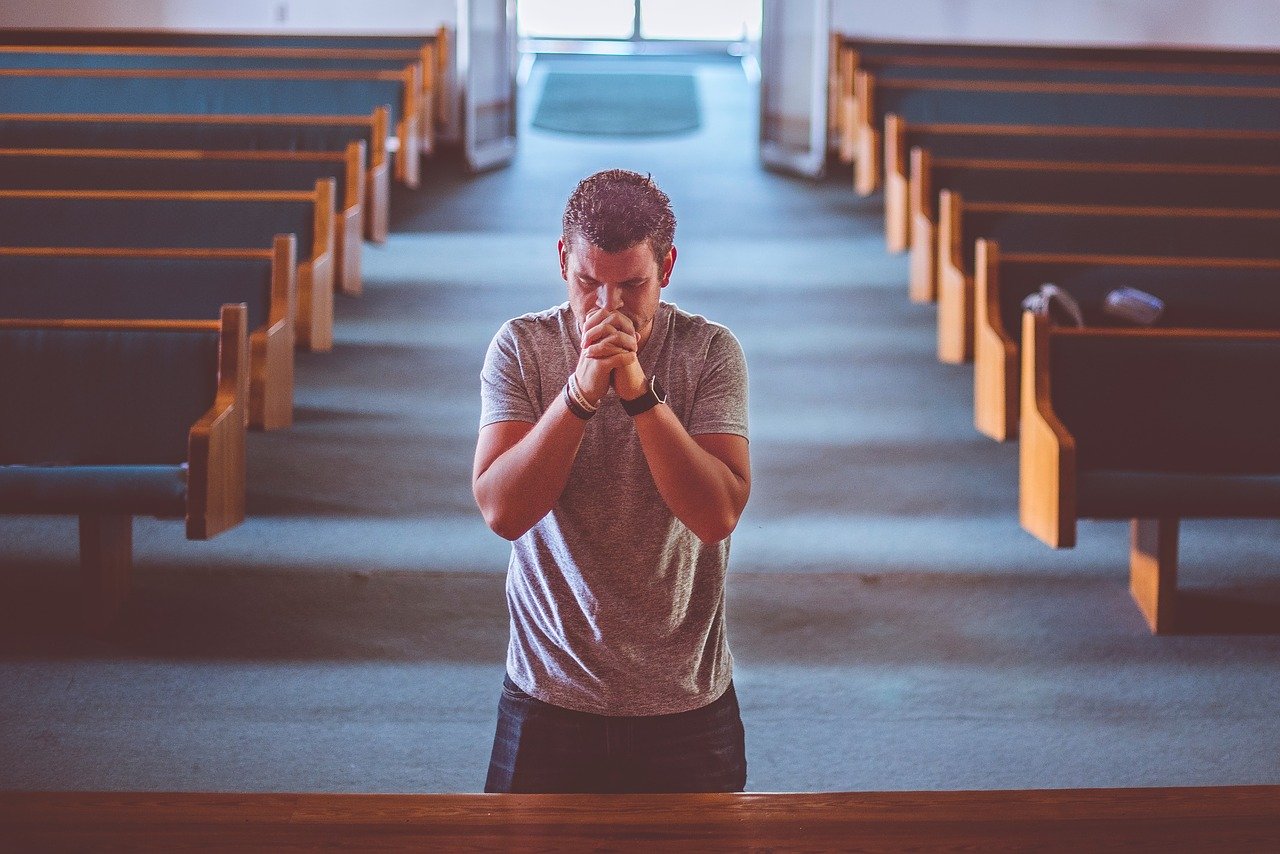A House of Prayer or A Den of Thieves? – Part One

The world at the time of Jesus’ birth was a rough place spiritually. There had been no word from God (apart from what was already written in the Old Testament) for over four hundred years. The land of the Jews was under Roman rule and their temple was being rebuilt by King Herod. The Jewish religious leaders had, as the Apostle Paul later stated, “…a form of godliness, but [they were] denying the power thereof” (2 Timothy 3:5). Therefore, much of the worship in the region was just ritual. The true meaning behind it that God had intended was little regarded, if even understood at all.
When Jesus began to make the Truth known and began teaching what it was that God actually desired from them, these religious leaders were very upset, to put it mildly.
This is one reason why Jesus had much opposition while He was present on the earth. The Pharisees, Sadducees and other Jewish leaders had a great deal of control over the people in the land. These leaders were considered to be the strictest observers of the laws that God had given Moses. In order to keep from violating them, they formed and carefully followed additional laws beyond what had come from God, and then added even more on top of these, thereby forming a ‘protective fence’ around what was originally given. The problem was that it was all manmade and ultimately benefitted them more than God’s people. When Jesus began to make the Truth known and began teaching what it was that God actually desired from them, these religious leaders were very upset, to put it mildly. They did not want to lose their position of authority and all of the glory that went with it.

But Jesus didn’t care how they felt or what they thought about Him; He desired to bring the people back to what God wanted all along. That is why He “went into the temple of God, and cast out all them that sold and bought in the temple, and overthrew the tables of the moneychangers, and the seats of them that sold doves, and said unto them, It is written, My house shall be called the house of prayer; but ye have made it a den of thieves”(Matthew 21:12-13).
What were the moneychangers and dove sellers doing there in the first place? In order to maintain all the priestly activities that went on in the temple, as well as the structure itself, the religious leaders required a tax from the people. Since the Romans who governed the land were considered by the Jews to be impure gentiles (non-Jews), any money received from them could not be contributed to the temple. Therefore, booths were set up to exchange Roman coinage for Jewish shekels, similar to what is done in modern day countries with the foreign currency of visitors. But those carrying out this operation charged significantly more for the transaction and then pocketed the fee.
All of these individuals were making a profit for themselves on the things of God. They saw an opportunity and took advantage of it.
Now the doves being sold in the temple were not just any doves captured from the sky. These were official sacrificial doves. In order for anything to be offered as a Temple sacrifice, it had to be without blemish or imperfection. This led to having sellers who would arrange to have these birds ready in advance. They made sure that the priest placed an official mark of approval on them and then charged an exorbitant fee, perhaps twenty times higher than what might be found at a street vendor (whose doves were probably inferior and imperfect). All of these individuals were making a profit for themselves on the things of God. They saw an opportunity and took advantage of it.

This is why Jesus came through the temple and drove them out. The house of God was intended as a place of worship and prayer where worshippers could go to meet with Him. By perverting it with their merchandising, the people were no longer going out of love and desire for God, but mostly because they were required to. They were basically paying to have their sins covered through these items prepared for sacrifice. Real love for God had run out and the whole process had become just a religion of works.
God wants His creation to be able to meet with Him freely by their own choice and desire. The sacrifices were the means by which He made it possible for anyone in a sinful state to come before the only One who is holy, righteous, sinless, and perfect. And this was why, when His house had become corrupted, He could no longer inhabit it. As a result, the path to Him became blocked and people were left without a way for their sins to be covered.
God’s loves us so much and desires to be with us all the time, but, sadly, we fail, or deliberately refuse to recognize this intense love.
But God’s house is not limited to just a physical structure. As we’ll see in part two, God wanted all along to live much closer to His people than in a literal temple or, as in the time of the Israelites in the wilderness, a tabernacle (or tent). God’s loves us so much and desires to be with us all the time, but, sadly, we fail, or deliberately refuse to recognize this intense love. As a result, we either allow or place things in the way that prevent any true relationship with Him. As long as there is wickedness, sin, or wrongdoing in His house, there will never be any true joy.

Are you finding what claims to be the house of God to be just a den of thieves? Are you no longer satisfied each week and feel that you are only paying what is due? It doesn’t have to be this way any longer. Instead of feeling down or depressed, and repeatedly complaining, turn the whole situation over to the Lord and leave it there. Earnestly let Him know that you want to know more of Him than what you know right now. Tell Him that you are not currently getting anywhere in the place where you are. Then, be open to His Spirit, who will lead you out of the corruption and disappointment into the true “house of prayer” that He designed for you all along.
Be sure to visit the second part of “A House of Prayer or a Den of Thieves” to read the rest of the story.
[Image credits:Featured image (when applicable) by El Greco from the National Gallery of Art through Wikimedia Commons on Picryl (Public Domain Mark PDM); Opening photo by Lehnert Landrock from Wikimedia Commons on Picryl (Public Domain Mark PDM)]




